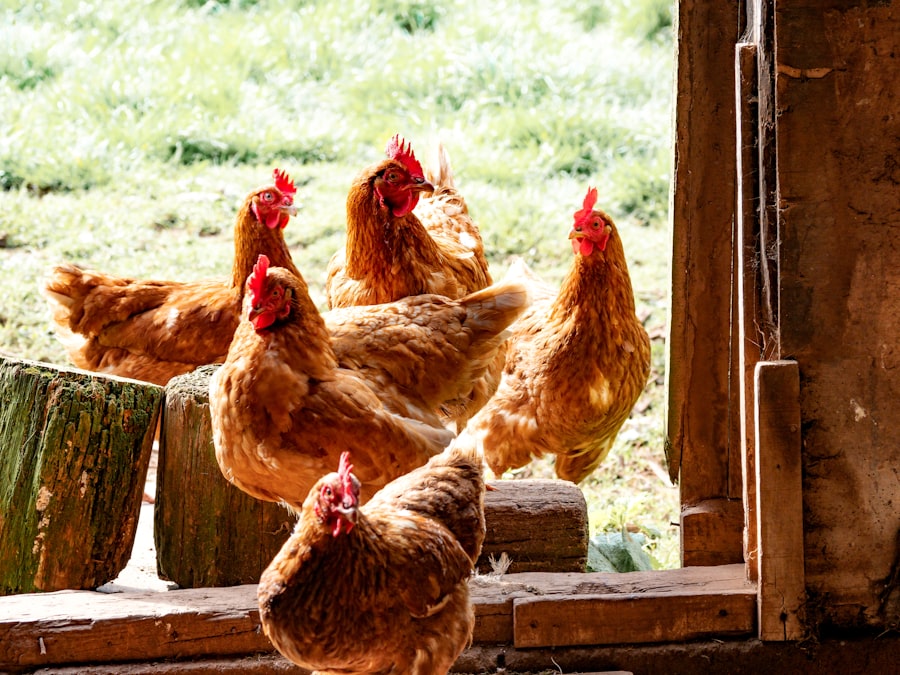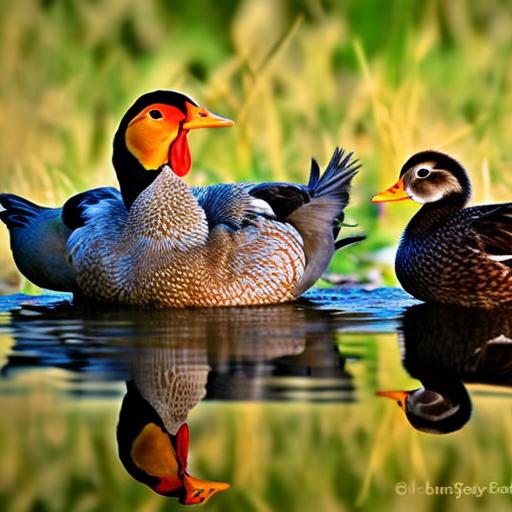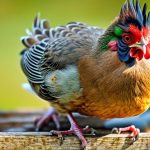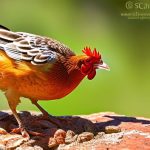Keeping ducks and chickens together in one coop is a topic that often sparks debate among poultry enthusiasts. While some people believe that ducks and chickens can coexist harmoniously, others have concerns about the compatibility of these two species. In this article, we will explore the possibilities of keeping ducks and chickens together, addressing common misconceptions and concerns.
One of the main concerns about keeping ducks and chickens together is the potential for aggression between the two species. Chickens are known to be territorial and may become aggressive towards ducks, especially during mating season. Additionally, ducks have different dietary and habitat needs compared to chickens, which can make it challenging to provide suitable conditions for both species in one coop. However, with proper planning and management, it is possible for ducks and chickens to coexist peacefully.
Key Takeaways
- Ducks and chickens can coexist in one coop with proper preparation and consideration.
- Ducks and chickens have different needs and behaviors that should be understood before keeping them together.
- Keeping ducks and chickens together can provide benefits such as pest control and increased egg production.
- Potential problems of keeping ducks and chickens together include aggression and different dietary needs.
- Factors to consider before keeping ducks and chickens together include space, water access, and predator protection.
Understanding the Differences between Ducks and Chickens
Before considering keeping ducks and chickens together, it is important to understand the physical and behavioral differences between these two species. Ducks are generally larger than chickens and have webbed feet, which allow them to swim. They also have a different beak structure, designed for filtering food from water sources. Chickens, on the other hand, have claws for scratching the ground in search of food.
In terms of behavior, ducks are more social than chickens and prefer to live in groups. They are also more active during the night compared to chickens, who are diurnal animals. These differences can affect their coexistence in one coop, as ducks may disturb sleeping chickens or require different feeding arrangements.
Benefits of Keeping Ducks and Chickens Together
Despite the challenges, there are several benefits to keeping ducks and chickens together in one coop. One advantage is pest control. Ducks are natural foragers and can help control insects and pests in the coop area. They also have a knack for finding slugs and snails, which can be a nuisance in gardens. By keeping ducks and chickens together, you can create a more balanced ecosystem and reduce the need for chemical pest control methods.
Another benefit is companionship. Ducks and chickens can form bonds and provide social interaction for each other. This can be particularly beneficial for ducks, as they are highly social animals. Having a mixed flock can also provide entertainment and enrichment for both species, as they engage in natural behaviors such as dust bathing and foraging together.
Personal experiences often highlight the benefits of keeping ducks and chickens together. Many poultry keepers have reported that their mixed flocks thrive and coexist peacefully. They have observed that the ducks and chickens establish a pecking order and learn to respect each other’s space. Some even claim that their mixed flocks produce better quality eggs, possibly due to the varied diet provided by the ducks’ foraging activities.
Potential Problems of Keeping Ducks and Chickens Together
While there are benefits to keeping ducks and chickens together, it is important to be aware of the potential problems that may arise. One common issue is aggression between the two species. Chickens may become territorial and attack ducks, especially during mating season. This can result in injuries or stress for the ducks. It is crucial to monitor the flock closely and intervene if any signs of aggression are observed.
Another concern is disease transmission. Ducks and chickens can carry different diseases, some of which may not affect one species but can be harmful to the other. It is important to practice good biosecurity measures, such as regular cleaning and disinfecting of the coop, to minimize the risk of disease transmission. Additionally, providing separate water sources for ducks and chickens can help prevent the spread of waterborne diseases.
To address these potential problems, it is recommended to introduce ducks and chickens when they are young, as they are more likely to establish a pecking order without aggression. Providing ample space and resources, such as multiple feeding and watering stations, can also help reduce competition and aggression. It is important to monitor the flock closely and be prepared to separate individuals if necessary.
Factors to Consider Before Keeping Ducks and Chickens Together
Before deciding to keep ducks and chickens together, there are several factors to consider. One important factor is space. Ducks require more space than chickens, both in the coop and in the outdoor area. They need access to water for swimming and foraging, so a larger coop and a suitable outdoor space are essential. It is also important to consider the climate in your area, as ducks are more cold-hardy than chickens and may require additional protection during extreme weather conditions.
Another factor to consider is the availability of resources. Ducks and chickens have different dietary needs, so it is important to ensure that both species have access to appropriate food sources. Ducks require a higher protein diet, which can be provided through commercial waterfowl feed or by supplementing their diet with insects or fish. It is also important to provide suitable nesting areas for both species, as ducks prefer to nest on the ground while chickens prefer elevated nesting boxes.
Before making a decision, it is crucial to do thorough research and assess your own situation. Consider the time, effort, and resources required to keep ducks and chickens together. It may be helpful to consult with experienced poultry keepers or join online forums or groups dedicated to mixed flocks. By gathering information and evaluating your own circumstances, you can make an informed decision about whether keeping ducks and chickens together is right for you.
Preparing Your Chicken Coop for Ducks

If you have decided to keep ducks and chickens together, there are several preparations you need to make before introducing ducks to a chicken coop. One important consideration is water sources. Ducks require access to water for swimming and cleaning their feathers. Adding a small pool or pond inside the coop or in the outdoor area can provide ducks with the water they need. It is important to ensure that the water source is safe and clean, and that ducks can easily access it without drowning.
Another preparation is adjusting the bedding in the coop. Ducks produce more moisture and waste compared to chickens, so it is important to use bedding materials that can absorb and control odor. Straw or wood shavings are commonly used for bedding, as they provide good absorbency. It is important to regularly clean and replace the bedding to maintain a clean and healthy environment for both ducks and chickens.
When introducing ducks to a chicken coop, it is recommended to do so gradually. Start by keeping them in a separate area within the coop, allowing them to see and interact with the chickens without direct contact. This will help them get used to each other’s presence and establish a pecking order. After a few days, you can gradually allow them to mingle under supervision, ensuring that there is enough space and resources for both species.
Chicken Coop Modifications for Ducks
In addition to preparing the coop, you may need to make some modifications to accommodate ducks. One modification is adding ramps or steps to help ducks access elevated areas such as perches or nesting boxes. Ducks are not as agile as chickens and may struggle to climb or fly up to higher areas. By providing ramps or steps, you can ensure that ducks have equal access to all areas of the coop.
Another modification is providing suitable nesting areas for both species. Ducks prefer to nest on the ground, so providing a shallow nest box filled with straw or wood shavings can accommodate their nesting needs. Chickens, on the other hand, prefer elevated nesting boxes. By providing separate nesting areas for ducks and chickens, you can ensure that both species have a comfortable and secure place to lay their eggs.
Modifications don’t have to be expensive or complicated. For example, you can repurpose materials such as old pallets or scrap wood to create ramps or steps. You can also use plastic bins or crates as nesting boxes for ducks. The key is to provide safe and functional modifications that meet the specific needs of both ducks and chickens.
Feeding Ducks and Chickens Together
Feeding ducks and chickens together can be challenging, as they have different dietary needs. Ducks require a higher protein diet compared to chickens, especially during their growing stage or when they are laying eggs. It is important to provide a balanced diet that meets the nutritional requirements of both species.
One option is to feed a commercial waterfowl feed that is specifically formulated for ducks. These feeds contain higher protein levels and additional nutrients that ducks need. You can also supplement their diet with insects, fish, or kitchen scraps to provide variety and additional protein.
For chickens, a standard poultry feed is usually sufficient. However, it is important to monitor their diet and ensure that they are not consuming excessive amounts of duck feed, as this can lead to health issues such as obesity or nutrient imbalances. Providing separate feeding stations for ducks and chickens can help prevent competition and ensure that each species has access to their specific feed.
It is also important to prevent food waste and ensure equal access to food for both species. Ducks have a tendency to make a mess while eating, scattering food around the coop. To minimize waste, you can use feeding troughs or containers that are designed to prevent spillage. It may also be helpful to feed smaller portions more frequently, so that the food is consumed before it has a chance to be wasted.
Cleaning and Maintenance of the Coop for Both Ducks and Chickens
Maintaining a clean and healthy coop is essential for the well-being of both ducks and chickens. Regular cleaning and disinfecting can help prevent the spread of diseases and parasites. It is recommended to clean the coop at least once a week, removing soiled bedding and replacing it with fresh material. Disinfecting the coop periodically can help kill any pathogens that may be present.
In addition to regular cleaning, it is important to monitor the coop for any signs of illness or injury. Ducks and chickens can be susceptible to different diseases and parasites, so it is important to be vigilant and address any issues promptly. Regularly inspecting the flock for signs of illness, such as changes in behavior or appearance, can help identify and treat any health problems early on.
It is also important to provide suitable ventilation in the coop. Ducks produce more moisture compared to chickens, so proper airflow is crucial to prevent the buildup of ammonia and mold. Ensure that the coop has adequate ventilation openings or windows that can be opened or closed as needed. This will help maintain a clean and healthy environment for both ducks and chickens.
Is It Worth Keeping Ducks and Chickens Together in One Coop?
In conclusion, keeping ducks and chickens together in one coop is possible with proper planning and management. While there are challenges and potential problems, there are also benefits to having a mixed flock. Ducks can provide pest control and companionship for chickens, while chickens can offer social interaction for ducks.
Before deciding to keep ducks and chickens together, it is important to consider factors such as space, climate, and resources. Doing thorough research and assessing your own situation will help you make an informed decision. By making necessary preparations and modifications to the coop, providing suitable feeding arrangements, and maintaining a clean and healthy environment, you can create a harmonious living space for both ducks and chickens.
Personal experiences vary when it comes to keeping ducks and chickens together. Some poultry keepers have had successful mixed flocks that thrive and coexist peacefully. Others may have encountered challenges or decided that separate housing is a better option for their situation. It is important to share experiences and learn from others, as this can help improve the well-being of both ducks and chickens in a mixed flock.
If you are considering keeping ducks and chickens together, it is recommended to consult with experienced poultry keepers or join online forums or groups dedicated to mixed flocks. By sharing your own experiences and asking questions, you can learn from others and make the best decision for your own flock.
If you’re wondering whether you can keep ducks with your chickens, you may also be interested in learning about the compatibility of geese and chickens. Poultry Wizard has an informative article on their website that explores the topic of whether geese can eat chicken feed. To find out more about this fascinating subject, check out their article here. Additionally, if you’re interested in breeding turkeys, Poultry Wizard has another article that delves into the mating season for turkeys. You can read more about it here. Lastly, if you’re looking for some inspiration for your chicken coop design, Poultry Wizard’s article on “The Chicken Coop Country Diner” might be just what you need. Discover creative ideas and tips by clicking here.
FAQs
Can I keep my ducks with my chickens?
Yes, it is possible to keep ducks and chickens together in the same coop and run.
What are the benefits of keeping ducks and chickens together?
Keeping ducks and chickens together can provide a variety of benefits, including increased pest control, improved soil health, and reduced feed costs.
What are the potential drawbacks of keeping ducks and chickens together?
One potential drawback of keeping ducks and chickens together is that ducks can be messier than chickens, which can lead to a dirtier coop and run. Additionally, ducks may require different feed and water requirements than chickens.
What should I consider before keeping ducks and chickens together?
Before keeping ducks and chickens together, it is important to consider the size of your coop and run, as well as the number of birds you plan to keep. You should also consider the temperament of your birds, as some chickens may be aggressive towards ducks.
How can I ensure that my ducks and chickens get along?
To ensure that your ducks and chickens get along, it is important to introduce them slowly and carefully. You should also provide plenty of space and resources, such as food and water, to prevent competition and aggression.
Meet Walter, the feathered-friend fanatic of Florida! Nestled in the sunshine state, Walter struts through life with his feathered companions, clucking his way to happiness. With a coop that’s fancier than a five-star hotel, he’s the Don Juan of the chicken world. When he’s not teaching his hens to do the cha-cha, you’ll find him in a heated debate with his prized rooster, Sir Clucks-a-Lot. Walter’s poultry passion is no yolk; he’s the sunny-side-up guy you never knew you needed in your flock of friends!







